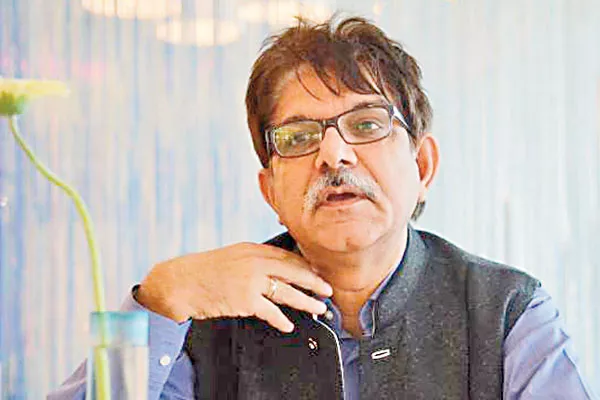Bracing Eastern classical for the online challenge
Sharif Awan of Tehzeeb Foundation talks about his first YouTube festival and the importance of accepting change
The 11th edition of the annual Tehzeeb Festival kicked off on Friday evening. Given the current set of circumstances with the coronavirus pandemic in full swing, the festival was held virtually. Performances, including improvisation in different raags, and traditional dances were broadcasted online from various parts of Pakistan and abroad.
The first day of the festival saw singers Izzat Fateh Ali Khan , Ahsan Ali Khan , Chand Khan, Suraj Khan , and Ustad Fateh Ali Khan. They were joined by tabla maestros Ustad Bashir Khan and Micheal Arshad , Gul Muhammad on Sarangi, Abdul Ghani on Harmonium and many more. A traditional dance performance by Suhae Abro from Italy was also aired.
For a showcase that primarily focuses on Eastern classical art forms, one would assume a more rigid or conventional approach in dealing with such a predicament. That being either an indefinite postponement or cancellation, something the world has seen with the most prestigious art festivals and exhibitions across the globe.
But then again, musicians, curators, and artists in Pakistan have had a long history of maneuvering through one set of troubles after another, most of which stem from systematic ills as opposed to misfortunes. Perhaps that is the latest Tehzeeb offering wasn’t just refreshing but oozed of passion and dedication.
"Art is essentially like water. It finds its own way. It can never stay stagnant," Shareef Awan the founder of Tehzeeb Foundation, the body responsible for this festival told the Express Tribune. "And then our artists have been very much used to climatic conditions and adversities if you look at history. Coronavirus is just one of the same."
Feeding the soul
That being said, for Awan the festival wasn't carried out to maintain a legacy of sorts, but rather to provide artists a platform through which they can fulfill a fraction of their needs in these challenging times; both in a cathartic and monetary fashion.
"As you know, most artists don't have the necessary technical infrastructure to showcase their art online without compromising quality,” said Awan. “So it was necessary to provide a platform where they could be recorded in an acoustic-friendly environment and then released for worldwide consumption. Everything going online is an opportunity and we all must make the most out of it.”
Adding to that, Awan said, "On a general level, the infrastructure in the country isn't developed enough for artists to make a living through online performances. However, we by the grace of God are giving financial compensation to our talent. Our main objective is the financial well-being of the artists and their catharsis."
According to Awan, these two objectives are not just limited to the three-day festival but are a part of Tehzeeb foundation’s long-term plan and vision. "One would say that a three-day festival wouldn't offer much monetary benefit to the artist. We used to do one physical festival a year in the past. This time we did four. Additionally, we are also planning Tehzeeb live sessions that would be one-hour each. This would mean that every month, four artists would be able to earn and get a decent exposure," Awan explained.
At the same time, Awan did clarify that since the purpose is to help the artist survive the foundation will be making payments on need-based criteria.
The digital challenge
Among obstacles the team faced, Awan noted that both management and the artists had to move out of their comfort zone. "Our artist isn’t used to performing without a physical audience. He needs an audience whom they can feed off in real-time. Secondly for people like me, acquainting ourselves with IT was a struggle," he quipped.
In a broader context, for Awan, the notion of the performing arts community going completely digital shouldn't be seen as a temporary arrangement. "Coronavirus isn't going away anytime soon. One has to live by this for quite some time. Even the best-case scenario would see these circumstances forward throughout the next year," he said.
"You will see a new normal now. The world will never be the same even when the pandemic ends. Everyone will have to go digital. We had a whole catalogue with us, which would now be premiered on YouTube."
All in all, the curator believed that with or without corona, transitioning to digital platforms would be highly beneficial for the classical music community as a whole. "Classical performers didn't have much of an audience, to begin with. They weren't being heard globally. Believe me, their art is better than most of the music considered good across the world in many ways," he said.
“When they will be heard internationally, they would least be able to get psychological compensation. That way, the classical community would be able to sustain itself," concluded Awan.


COMMENTS
Comments are moderated and generally will be posted if they are on-topic and not abusive.
For more information, please see our Comments FAQ